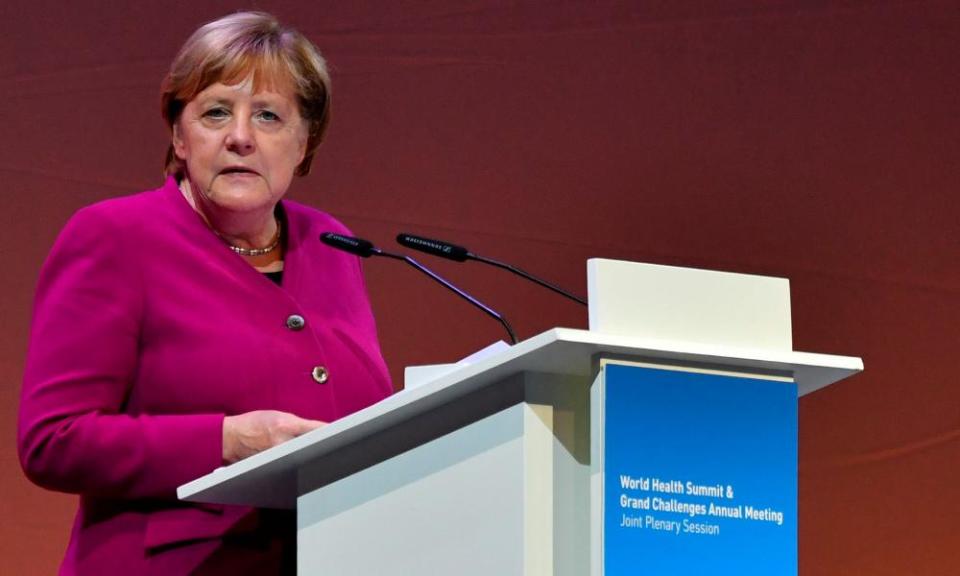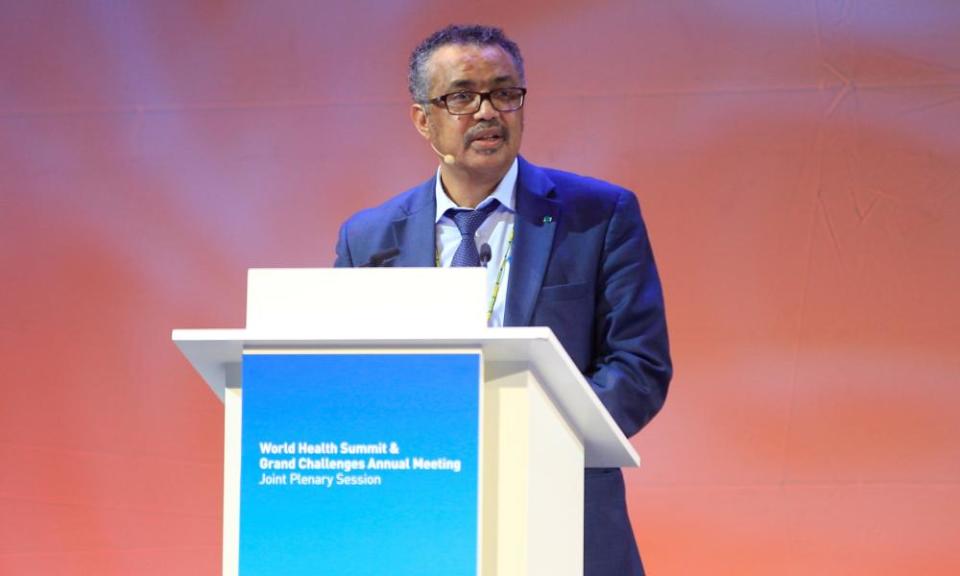Merkel calls for international unity in the face of global health threats

Angela Merkel has urged countries to work together in the fight against global health threats, warning that disease and epidemics are security risks that do not respect national borders.
Addressing international health experts in Berlin, the German chancellor acknowledged that global cooperation was under pressure, but said nations cannot ignore health challenges.
“We all know about the devastating consequences, particularly of communicable diseases, first and foremost on individuals, but also on economies,” said Merkel.
“Disease and epidemics do not stop at borders, they do not only put individual health systems to the test, they can also jeopardise the security and development of whole regions,” she told a joint meeting held by the World Health Summit and Grand Challenges, a health research initiative, on Tuesday. “It is absolutely clear that global issues require global responses, from the richer countries but also from those that are less prosperous.”
The 2014 Ebola crisis in west Africa was a wake-up call, said Merkel, adding that neither national nor international systems were prepared to cope with the spread of the disease.
Her speech came amid warnings that the international community is poorly equipped to deal with future epidemics and unlikely to meet the 2030 deadline for health targets set out in the sustainable development goals.
While agencies had responded more quickly to the most recent Ebola outbreak in the Democratic Republic of the Congo, the health community would not be able to cope with more rapidly spreading diseases, said Tedros Adhanom, director general of the World Health Organization.

“God forbid, if we have a very potent airborne disease, it could be influenza,” he told delegates. “We are not ready. We are as strong as our weakest link, and there is a lot of vulnerability.
“If there is no health security it can trigger political, economic and social upheaval on a global scale.”
Adhanom warned that the international community must collaborate effectively to reach health targets, adding that existing efforts are off track across a range of areas. “At the current rate we will miss the targets on maternal, child and neonatal mortality, we will miss the targets on HIV, TB and malaria. We will miss the targets on family planning and child stunting, universal health coverage and more.
“Fragmentation, duplication and inefficiency are undermining progress,” he said. “We must do something differently.”
Tedros welcomed a commitment by 11 leading international organisations to develop a joint plan that aims to speed up progress on the 2030 agenda. The partnership will include organisations such as the World Bank, the UN’s children’s agency Unicef, and Gavi, the international vaccine alliance.
Merkel, who called for the initiative jointly with the Ghanaian president Nana Akufo-Addo and Erina Solberg, the prime minister of Norway, said greater collaboration was needed. “The principle of multilateralism has been put to the test for quite some time now and is under pressure,” she said. “Multilateralism creates win-win situations for each and every one of us.”
Germany will also invest €500m into antimicrobial resistance, a major global health concern that threatens the effective prevention and treatment of an increasing range of infections.
“We have to contain resistances against antibiotics because we cannot simply hope researchers will come up with new ideas on antibiotics all the time,” said Merkel.

 Yahoo News
Yahoo News 